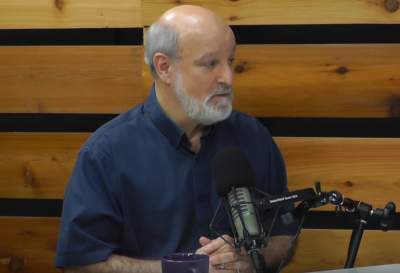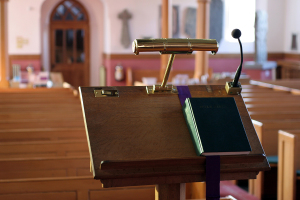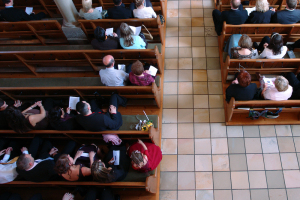The Third Way: Lessons From the OT Prophets

In my posts, I have been exploring the values that should fuel engagement by Christians. I have contended that the Third Way has to be careful how it wears its commitments and show values that indicate how the Third Way is distinctive, not engagement as usual in the world. Tone matters and so does consistency, not just of belief but of action.
One of the current tendencies in our culture currently is to be very tribal about our battles, whether politically left or right. What I mean is that the admission of any weakness is to be avoided as to not give space to the "other" side. This approach to engagement in the end is not helpful because it means that real weaknesses may not be acknowledged. More than that it shows a way of engagement that is not at all biblical and that is dishonoring to the God those of us of faith claim to represent.
Think with me for a second about Israel. In the Old Testament they are God's people. He invested promises with them and expected them to represent him in a fallen world (sound familiar?). They had a divine cause and mission in the world. Their sacred texts are dominated by the prophets. Who were those prophets and what drove them? They were as pro-Israel as anyone, yet committed to God and his ways. Those prophets wanted the best for people, including God's people. Yet who did they spend most of their time correcting and challenging? It was Israel and her inconsistent behavior that got the bulk of their time, attention, and ink. There was an understanding that being self-critical and facing up to faults was the only way to grow and be prepared to engage others well and credibly. In the midst of being less than perfect and admitting to such, they sought to be reformed by God when they fell short. So they hammered away at the internal shortcomings of God's people, well aware that the world around them was also in great, even greater, spiritual danger. They did it anyway because they knew their own message only had validity if they looked and acted differently than others.
What was the response from other in Israel? We know from our texts that these prophets were not received with open arms. The response was a nearsighted tribalism. The prophets experienced rejection from within the nation they critiqued, often seen as being traitors to the nation's cause. Still God thought enough of what they said long ago to preserve it for all time and make their work a part of Scripture. Might that be instructive to the church today? Might it indicate that as much as we in the church criticize the world, we need to pay more careful attention to our own faults and flaws? Might we need to be up front about them and where God is teaching us? After all, we know that we will be flawed until God fully restores us. To claim others are worse does not relieve us of the responsibility to represent God faithfully and to seek to grow in our own faithfulness. Forgiveness does not nullify the need for reform. Forgiveness appreciated is supposed to inspire reform.
Being self-critical also will deliver us from another tendency, that is, to be inconsistent in the way we hold our standards. I am seeing this inconsistency in some of our evangelical leaders today. It is a sad thing to watch and hear some of them being so dismissive of things they would directly condemn in others if the politics of the one committing such acts were different. I can say this because the tables were reversed a few decades ago and many leaders did speak directly about character and the impact of poor modelling on our culture then. The inconsistency of this is so obvious that those who distain Christianity, evangelicalism, and religion are all over it in a second with very legitimate charges of hypocrisy. The damage done to our own message and God's work is being registered among the young who see it and walk away from the faith. Unless we can be legitimately self-critical and own up to faults rather than side stepping them, this charge sticks to us and smells to high heaven.
I think of Nathan and how he stood up to David. He spoke truth to power, because he knew ultimate power was with God and his ways. Do we need more of this today and not less? If so, the Third Way argues that being consistent and self-critical are values in need of restoration if we seek to be ultimately restorative to the larger culture. We cannot ask for from others what we do not show from ourselves. That is a lesson the prophets teach those of the Third Way.




























